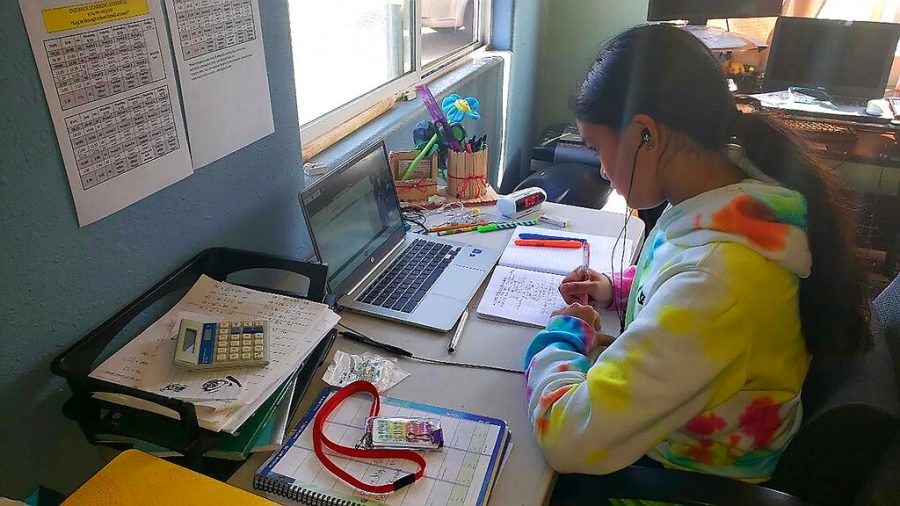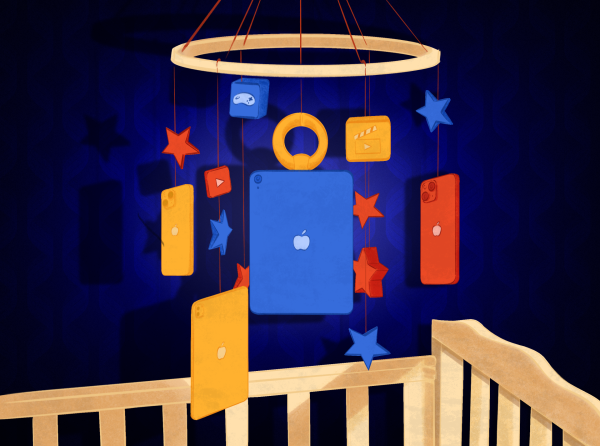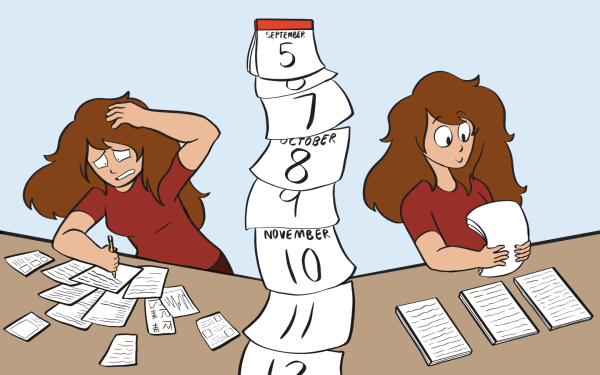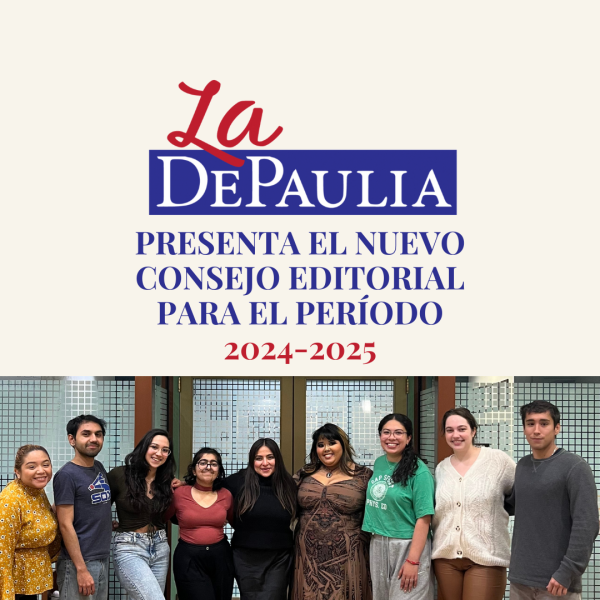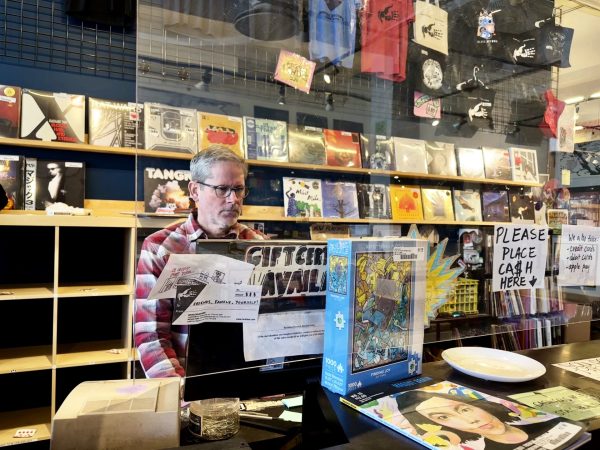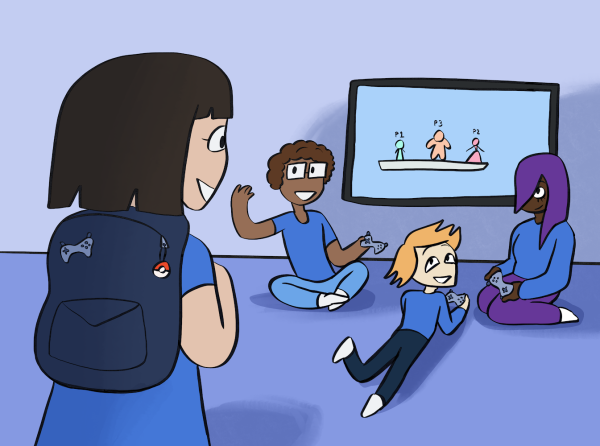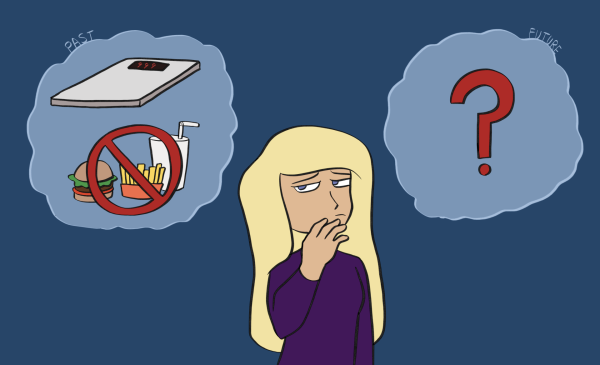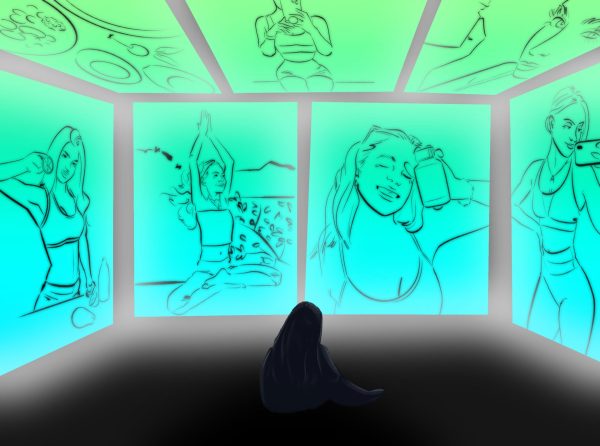OPINION: Zoom fatigue is already an issue. Seasonal depression will make it worse.
This photo provided by Charles Timtim shows his daughter, name withheld by parents, doing schoolwork from home in Waipahu, Hawaii, Tuesday, Sept. 22, 2020. Timtim’s mother doesn’t think it’s safe for her daughter to be back at school but she also doesn’t want her exposed to an online learning program called Acellus that misspelled and mispronounced the last queen to rule the Hawaiian kingdom. Parents spotting questionable content on Acellus is forcing some school districts across the country to reconsider the program or stop using it. (Charles Timtim via AP)
For a lot of us, having to turn our bedrooms into our office or classroom during the Covid-19 pandemic has been among the most emotionally and physically draining moments in our lives. It’s been seven months now and we’re feeling it.
Zoom fatigue is real and it is here, it has been here for several months now, but it hasn’t been until recently that college students are feeling it harder now than before. School in the spring didn’t even feel like it was that hard. We felt it as a temporary fix until we were allowed to return to our campuses in the fall.
Sadly, our hopes weren’t fulfilled. It was all fun and games until we were hit with the reality that maybe Zoom University would be in the future of our college experiences. Slowly, it started to become a long-term lifestyle that affects our mental and physical health, and that could be for multiple different reasons, but the biggest source of these feelings is from our number one most-visited application: Zoom.
I don’t know what it is, but it has caught my attention that since everything moved online, there suddenly isn’t enough time in the day to get everything done. And if we’re being honest here, it’s only going to get worse from here on out.
With winter just around the corner, I can only imagine that seasonal depression will be hitting differently this time around. We already sit around on our computer and phones enough during the day, but at least in the spring and fall, we have the opportunity to get outside and be disconnected from our screens.
I’m sure this isn’t the first time you have heard this, and it won’t be the last, but why has everyone been in the same state of being beyond exhausted and over schoolwork already? Before we dive in deeper into the topic Zoom fatigue, it’s important to know what it is and how it pertains to almost everyone.
This past week, I sat down with Dr. Orson Morrison, a clinical psychologist and the director of DePaul Family and Community Mental Health Services. My first question to him was if he believed in Zoom fatigue and how it affects our health. His answer won me over — he chuckled and said “Absolutely.”
“I think that it is even more difficult for the people that don’t typically sit in front of a computer, on a screen all day to be very stationary,” Morrison added. “There is also the element that we’re not just looking at our screens, but it’s also that we’re communicating interpersonally. Not only do we look at the other person, and that process can also be exhausting.”
Over Zoom, our feelings and attitudes can never fully be understood just by looking at someone through your screen. Non-verbal signals include everything from facial expressions, to the tone in our voice, our posture and gestures. And for someone who likes to talk with their hands almost all the time, this has been one of the toughest struggles on Zoom for me.
In face-to-face meetings, it’s easier to pick up on these non-verbal cues because you can see and listen to whoever is speaking. In a video chat, it’s a lot harder to determine if anyone is listening to you or not. A professor of mine’s favorite way to understand if everyone on the call can see him and hear him is by showing a thumbs up or a thumbs down. It’s silly but, it is the easiest way to get a response from everyone since they can’t pick up the vibe of the classroom.
Moving into the physical health concerns of Zoom, Morrison said, “I know for me personally, in my work I am often getting up, I’m moving. I’ll be interacting with clients and families. Even walking around the clinic, that movement of getting up and walking around is not only helping our wellness, but also helping our bodies to destress.”
Morrison added that by purposefully making time in his day to have mini breaks from his screen is a key element to his daily life. Whether it’s going on a walk, reading a book, spending time with friends and family or even just sitting outside, it lets your body and especially your eyes take a break from your desk and especially your computer.
Now, it might be a little difficult at first to find time to put breaks in your day. In fact, making time for self-care should always be a top priority. DePaul junior Martha Vazquez is a big advocate for self-care when it comes to Zoom fatigue.
“Do whatever it is that evokes stress relief for you,” she said. ”Be fiercely committed to your down time. And most importantly, [get] enough sleep. This allows your brain to fully shut down and relax.”
Zoom fatigue is real and it’s here, but it’s never too late to help reduce it, and professors should keep that in mind that as long as Zoom meetings continue. Professors can tell when no one is paying attention or is bored out of their mind during a lecture. Here’s hoping that they start to catch on that not only is it beneficial to their students, but to them as well. Perhaps whoever is hosting the meeting can decide if it’s an important subject or not and if it truly needs to be discussed. In an educational setting, Morrison believes that “Professors should be mindful about the impact of being on a screen for so long.”
With the combination of seasonal depression and Zoom fatigue, “it is definitely going to be a big factor of our mental health,” Morrison said. “Truthfully, there are so many other things that are impacting our world now. But seasonal depression will be a bigger factor to our stress. It is crucial. Therefore it is important to practice radical self-care.” Radical self-care is prioritizing your own health and needs before you can take care of others.
So when it comes to an overwhelming Zoom call or a pile of homework to keep up with, don’t be afraid to reach out to your professors and let them know what’s going on. Vazquez releases a deep sigh and says, “Honestly, we’re all in this together. If a student is less stressed, they are more likely to contribute more to the class which in the end benefits the professor.” I couldn’t have said it better myself.
If you’re okay and living fine with Zoom, all I say is invest in blue light glasses. Protect your eyes. And if you’re not okay with Zoom, just know that you’re not the only one.


